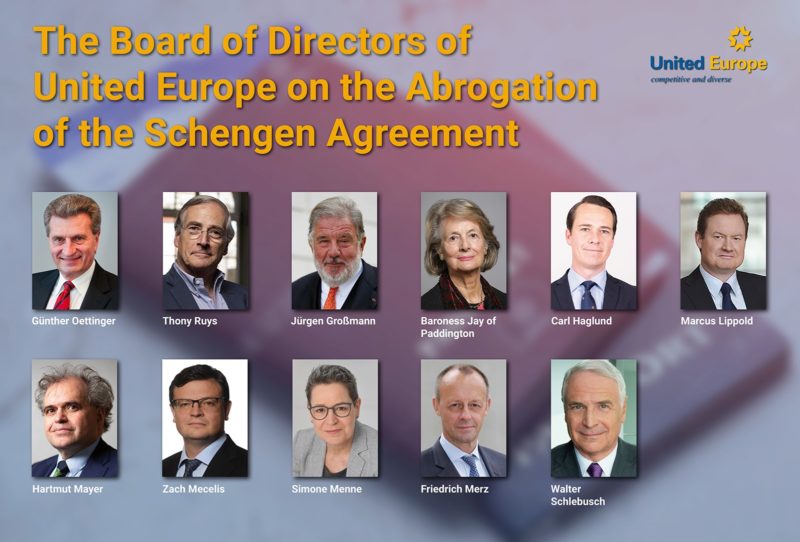On 14 June 1985, 35 years ago, Belgium, Germany, France, Luxemburg and the Netherlands laid the foundation for the European single market. In Luxemburg’s Schengen, they agreed that the internal borders of these countries could be crossed “at any point without checks on persons”. On 25 March 1995, the Schengen Agreement was signed by Belgium, France, Germany, Luxembourg, the Netherlands, Portugal, and Spain. Over the years, a total of 26 countries joined the agreement. According to the declaration, it should be “irreversible“.
Exactly 25 years after the signing, the borders in Europe were closed again. The Corona pandemic led to the suspension of one of the greatest achievements of the European unification process, the freedom to travel. Instead of working together across borders to overcome the crisis, an open Europe became a continent of nation states again. The fact that in this crisis, which affects all countries and peoples equally, it was not possible to find a European solution is a fatal signal, not only for coming crises and threats.
The suspension of the fundamental right of freedom of movement has various consequences, including the deepening of the economic recession, the emergence of resentment, a relapse into national egoisms and an extreme burden on the population on both sides of the borders. And it shows that the Schengen Agreement is not at all irreversible.
To ensure that the Corona pandemic does not leave any lasting damage on the process of European integration, the EU Commission must set clear time and regional guidelines for the future application of the Schengen rules, not least in order to move Europe forward economically and politically. For this reason, the Board of United Europe demands that the EU treats the possibility of free border crossings and thus the prerequisite of a functioning internal market as a top priority. To make this possible, it must issue clear, easily understandable rules of conduct with the support of the member states, which are binding for all EU countries.
We must strengthen the European Union. That is why we must not allow one of the most important pillars of the European integration process to be permanently damaged by external events, be they streams of refugees or pandemics.
The Board of Directors of United Europe e.V.
Günther H. Oettinger (President), Germany
Anthony Ruys, (Vice President), The Netherlands
Dr Jürgen Großmann (Treasurer), Germany
Carl Haglund, Finland
Baroness Jay of Paddington, United Kingdom
Marcus Lippold, United Kingdom
Zach Mecelis, Lithuania
Dr Hartmut Mayer, Germany
Friedrich Merz, Germany
Simone Menne, Germany
Dr Walter Schlebusch, Germany



